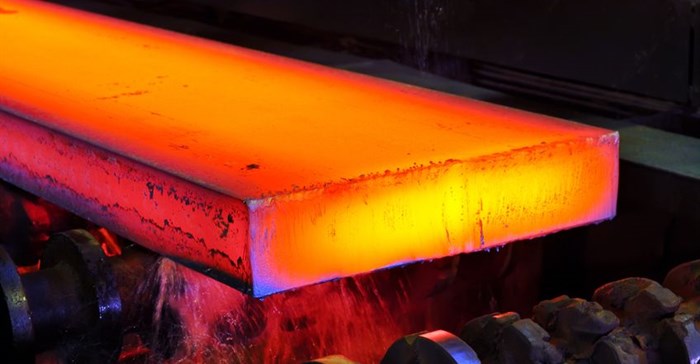ArcelorMittal SA CEO Wim De Klerk says if the country's biggest steel maker does not get safeguard protection from the government - in addition to 10% basic tariff protection - from a flood of mainly cheaper Chinese imported steel, the South African steel industry is likely to become extinct.
He also says the company is set to make a "huge" loss in the six months to December. This comes after the South African unit of the Indian-backed Arcelor group - the world's biggest steel producer - made a net loss of R8.6bn to December 2015. ArcelorMittal SA produces 75% of the country's steel.
De Klerk's comments come as the state-owned Industrial Development Corporation (IDC) has dropped plans to build a R5bn steel mill in the country, with Chinese partners, once touted to be Hebei Iron & Steel Group. "They [the IDC] have confirmed it is off," he says.
De Klerk also confirms that ArcelorMittal SA is bidding to reopen the structural steel mill of the defunct Evraz Highveld Steel and Vanadium plant - once a part of SA's second largest steel group.
"It is a done deal from our point of view, but needs board approval," he says.
The mill manufactures steel structures used in large buildings such as shopping malls. These are not made anywhere else in Africa. It is the single prize asset of the Russian-backed Evraz Highveld plant that once anchored the economy of Emalahleni in Mpumalanga province, but that is now in liquidation.
If the Evraz Highveld deal comes to fruition - amid large overcapacity of steel output in SA - ArcelorMittal SA will have an even bigger monopoly in domestic markets. But the company has recently allayed government anger over its monopoly pricing practices, and has also struck a long delayed black economic empowerment transaction. It will pay a R1.5bn competition authority penalty for price-fixing, and will also regulate prices for five years, while investing R4.6bn in operating efficiencies, in terms of its deals with government.
The vendor-funded R2.3bn "walkaway" empowerment deal for 25.1% of the company has a lock-in period of 10 years. If its stock reaches R44 per share after this period, the empowerment partners will get 10% of the company unencumbered. But it is a long walk to renewed and sustainable profits. If GDP falls below 2%, the steel industry has negative growth, says the South African Institute of Steel Construction.
A recent agreement between construction companies and the government to speed transformation in the construction industry has provided hope that the state will start spending on large infrastructure projects as called for under the National Development Plan (NDP). The domestic construction and engineering sector uses about 50% of all local steel produced.
But De Klerk says the government - despite a raft of other agreements struck between the steel industry, the state and labour - has still not committed to using domestic steel in infrastructure development. This leaves survival of the domestic industry moot in future. "We can only promise not to kill jobs as long as we are profitable.
Transnet and Eskom are the biggest users of steel, and both are among ArcelorMittal SA's largest customers. "That's why government realised they don't have a choice in not letting this business survive," he says.
ArcelorMittal SA's 10,000 employees support another 100,000 jobs, and millions more when SA's major industrial sectors are counted in. But the Steel and Engineering Industries Federation of Southern Africa (Seifsa) highlights growing concerns over the long-term contraction of the nation's metals and engineering sector.
"The production figures continue to paint a dire picture," Seifsa senior economist Tafadzwa Chibanguza says.
He says that when the 12 months to September 2016 is compared with the 12 months ending September 2015, the sector has contracted 4.18%.
Trade and Industry Minister Rob Davies says the South African steel industry directly accounts for 1.5% of GDP. When mining, manufacturing, the automotive sector, construction and state procurement are factored in, it is estimated that the industry supports 15% of GDP and employs about 8-million people.
He says the further loss of domestic steel production will constitute "a grave threat" to the growth drivers set out in the NDP, the Industrial Policy Action Plan and President Jacob Zuma's nine-point plan for GDP growth.
De Klerk says ArcelorMittal SA's export-oriented Saldanha plant was "built on the concept of cheap power". But with no respite from Eskom's exorbitant costs, there "is a lot of thinking that needs to be done", he says.
Source: Business Day















































